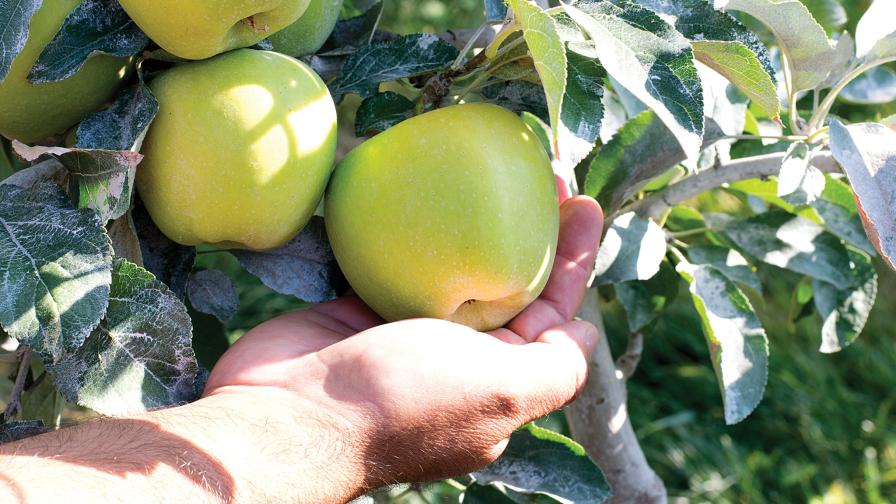Deadly Disease Front and Center for Citrus Growers
To say growers are concerned about the threat of Asian citrus psyllid (ACP), the pest that carries the incurable disease Huanglongbing (HLB), is certainly an understatement. A whopping 94% of citrus growers answering the American Fruit Grower® and Western Fruit Grower® magazine’s 2021 State of the Industry survey say they are concerned, a figure that grows with each passing year.
It’s led to “flat and declining citrus production,” says one grower.
Another echoes that sentiment: “It’s difficult to keep up with the cost of foliar sprays [to maintain] the health of the trees.”
Fifteen years since the emergence of HLB in Florida, where it is commonly known as citrus greening, the disease has spread to every grove in the state and has cut production by 70%. Growers have identified production programs that help infected trees stay more productive, but these often are costly. Growers need strong prices for orange juice — 90% of Florida’s citrus crop goes into juice processing — to cover the cost of the production programs.
In California, where, unlike Florida, growers focus on citrus for fresh eating, the first ACP was found in 2012 and the initial case of HLB (in a residential back yard) in 2017. It has not yet been found in California’s commercial citrus belt in the San Joaquin Valley, but scientists believe it’s likely a matter of time. This past fall there have been many ACP finds in Kern County, where citrus was the third-most valuable crop, with a value of nearly $1 billion in 2019.
Growers taking the survey are expressing concern about how it will shape the industry, with one fearing “possible contraction.”
Another says it may well lead to the “decline/loss of small- and medium-sized family farms.”
However, the survey results on citrus aren’t all doom and gloom. Just 6% of the respondents say they plan to decrease production in 2021. Most surprisingly, the same number of growers say they are increasing production this coming year as those standing pat — 47%.
California growers are buoyed by recent research, such as one recent breakthrough by University of California scientists on peptides. Says one: “UC-California research may save the industry with some future remedies.”
Another grower notes what a lot of observers believe, that “genetic rootstocks resistant to HLB” are a key to defeating
the disease.
Florida growers have had a few rough years recently, not just because of HLB, but high inventories and other factors have led to reduced prices. One grower notes the “bad economic price decrease from Mexican imports.”
But industry experts say the 2020-2021 Florida crop will enjoy better pricing as inventories have been reduced because consumer demand is up for orange juice due to COVID-19. One grower notes, while greatly concerned about HLB, in the short term it would be “great if we can stop or highly tariff imported juice from Mexico and Brazil.”










